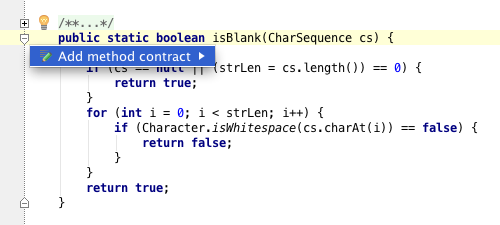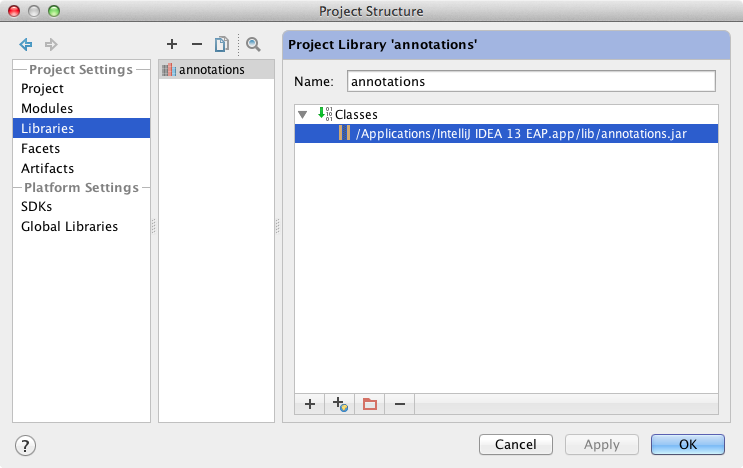IntelliJ IDEA
IntelliJ IDEA – the Leading IDE for Professional Development in Java and Kotlin
Better Control Flow Analysis with Contract Annotations and IntelliJ IDEA 13
As we’re closing in on the release date, we’re going to publish more details on the new features of IntelliJ IDEA 13. Today we’d like to tell you about the new @Contract annotation.
If you are aware of @Nullable/@NotNull annotations, you probably know how helpful they are against NullPointerException. The new @Contract annotation brings one more layer of safety for your code by defining dependencies between method arguments and return values. This information lets IntelliJ IDEA provide smarter control flow analysis for your code and avoid probable errors.
Here’s an example: say we’ve got a method sort() that returns a sorted list or a null value if the argument is null.

Now if we try to to call this method with a null value and check the result against null, IntelliJ IDEA will not complain because it doesn’t know that a null input yields a null output.

How can we help IntelliJ IDEA? That’s right… Decorate the sort() method with a @Contract annotation, specifying that null inputs yield null outputs:

Now IntelliJ IDEA can see that the sort() method always returns null and the if statement is redundant. The corresponding message appears in the editor.

The @Contract annotation value has the following syntax:
- contract ::= (clause ‘;’)* clause
- clause ::= args ‘->’ effect
- args ::= ((arg ‘,’)* arg )?
- arg ::= value-constraint
- value-constraint ::= ‘any’ | ‘null’ | ‘!null’ | ‘false’ | ‘true’
- effect ::= value-constraint | ‘fail’
The constraints denote the following:
- _ – any value
- null – null value
- !null – a value statically proved to be not-null
- true – true boolean value
- false – false boolean value
- fail – the method throws exception, if the arguments satisfy argument constraints
The @Contract annotation is a powerful and flexible tool that helps make your APIs safer. However, you can use it not only for annotating your own code but also for other existing libraries.

Once you’ve configured the annotations for the project libraries, the IDE stores this information in simple XML files so it can be shared with the team via version control.
To enable the annotations in your project, just add <IntelliJ IDEA Home>/lib/annotations.jar to the classpath via Project Structure.

UPDATE: Please find the latest annotations.jar in Maven repository.
Develop with Pleasure!
Subscribe to IntelliJ IDEA Blog updates







